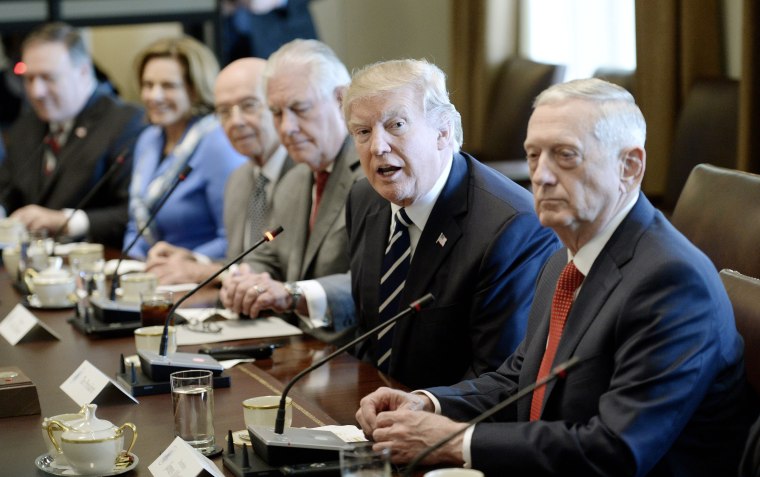The White House has not yet released the details of Donald Trump's new policy on the international nuclear agreement with Iran, but the Washington Post had a striking report yesterday on how that policy came together behind the scenes.
President Trump was livid. Why, he asked his advisers in mid-July, should he go along with what he considered the failed Obama-era policy toward Iran and prop up an international nuclear deal he saw as disastrous?He was incensed by the arguments of Secretary of State Rex Tillerson, Defense Secretary Jim Mattis and others that the landmark 2015 deal, while flawed, offered stability and other benefits. He did not want to certify to Congress that the agreement remained in the vital U.S. national security interest and that Iran was meeting its obligations. He did not think either was true.
A Post source added that the president "threw a fit" and was "really furious." And that alone offers an important insight into Trump's temperament: reality conflicted with his expectations for what reality should be, so he threw a tantrum. He was "livid," not because Barack Obama's policy was failing, but because his own team told him it was working.
The result, however, was a new process in which West Wing officials, including White House National Security Adviser H.R. McMaster, set out to prevent the policy's outright demise, while also accommodating Trump's disgust for the policy he's never actually understood.
All available evidence suggests the result will be a policy in which Trump falls short of killing the international agreement. He'll instead declare his odd belief that the nuclear deal is not in the United States' interest, and then leave questions over sanctions in Congress' hands.
And while we'll be able to examine that policy in more detail once it's available, let's not brush past how remarkable the behind-the-scenes process has been.
The Washington Post's reporting describes a dynamic in which U.S. foreign policy was shaped in a way that carefully protected the ego of a childish president who's indifferent toward the substantive details of an agreement he claims to hate.
Trump's personal opinions were at odds with the facts, so his team had to scramble to come up with a way to protect national security while placating their easily enraged boss.
As The New Republic's Alex Shephard explained yesterday that it's "unsettling" to know Team Trump's decision on the Iran deal "wasn't made for any reason related to policy -- it unsettles an acceptable framework by adding considerable, unnecessary, and far-reaching risk. Instead, the United States is shifting its policy toward Iran simply because President Trump doesn't want to acknowledge any of Barack Obama's achievements. This compromise was cooked up to please the president's ego, not because it serves any sort of larger strategic or geopolitical interest."
